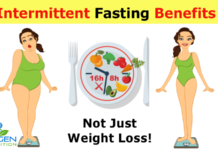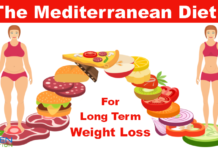As they get older, there are lots of people that complain about their weight.
Getting older can sometimes be accompanied with increasing in body mass, but it is something that can be avoided or at least minimized.
Understanding Your BMR as You Get Older
Your BMR or Basal Metabolic Rate refers to the amount of calories that you burn each day that delivers fuel the involuntary processes which are taking place inside your body.
These are functions such as your heart beating, your brain activity and your digestive system as it continues to perform its duty.
It is a sort of estimation of how much energy your body needs to maintain its balance when it is in a resting state.
Any Intake of energy above this level, less the energy expended on physical and mental activity, will determine if there is likely to be a net loss or gain in any body weight.
A person’s BMR depends to a large degree on their body composition.
This means that people who have more muscle mass will burn more calories during a 24 hour period that a much leaner person, or someone the same weight, but with theirs being fat.
This is due to the fact that muscle needs more calories than fat to sustain its self.
Muscle cells are more active than fat cells which are principally storage cells.
People who are overweight, inactive and have a diet based on simple carbohydrate foods will have a lower and slower BMR than someone who is active and has a proper nutritional diet, based on protein, healthy fats and whole foods.
The concept of “fat-burning” includes actions which increase the Basal Metabolic Rate.
Most people tend to cut down quite a bit on their level of physical activity as they get older.
This means that their bodies need much less calories now than they did when they were still young and actively working or participating in sports.
An average individual will lose about 10 per cent of their total muscle mass every ten years starting from round about the age of 45.
So, by the time they reach the ripe old age of 45, they will start losing up to a half pound of muscle every year while their body gains the same amount of fat.
If you have now reached your 60s, you won’t need to eat as many calories as you used to, so you should re-think your diet and make any necessary adjustments accordingly.
It’s Important to Have a Diet High in Nutrients
Quite a few studies have shown that caloric restriction is one consistent factor that helps prolong a human being’s lifespan.
It is increasingly obvious that a healthy diet, which means consuming the right types of food daily, will help reduce the body’s desire for more caloric intake.
Just focusing on watching your calories, but basing your intake on simple carbs, sugars and starches will lead you to constantly feeling hungry and even deprived.
Consuming nutrient rich food with adequate protein and fat included will help you feel much fuller, with less calories accumulating in your body.
This will help to increase not only your BMR but your lifespan as well.
Once your body has adjusted and becomes accustomed to eating fewer calories you will find it much easier to enjoy your food without the need to battle against those urges to overeat.
Exercise is a Great Way to Raise Your Metabolism
While you are exercising, the body’s peripheral tissues get activated; this prompts the body to utilize more calories while also increasing in overall muscle mass.
The result will be an increased total caloric expenditure.
It is well documented that exercise is essential for promoting longevity.
Combining healthy eating patterns and exercise routines which include cardio and strength workouts will contribute greatly to delaying the adverse effects of aging on your health and wellbeing.































